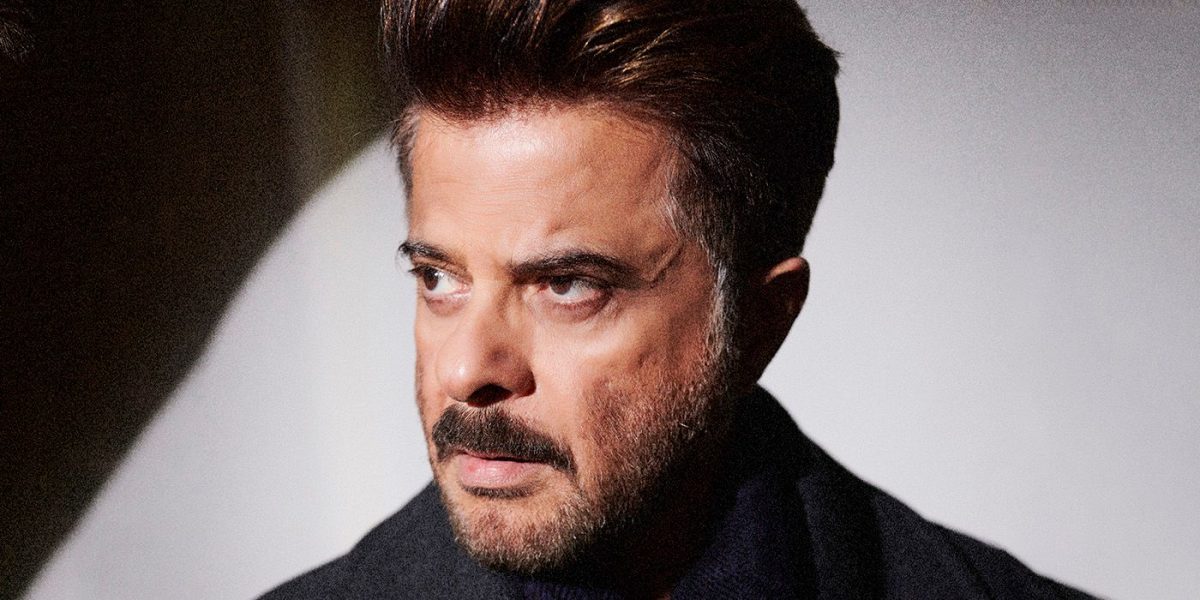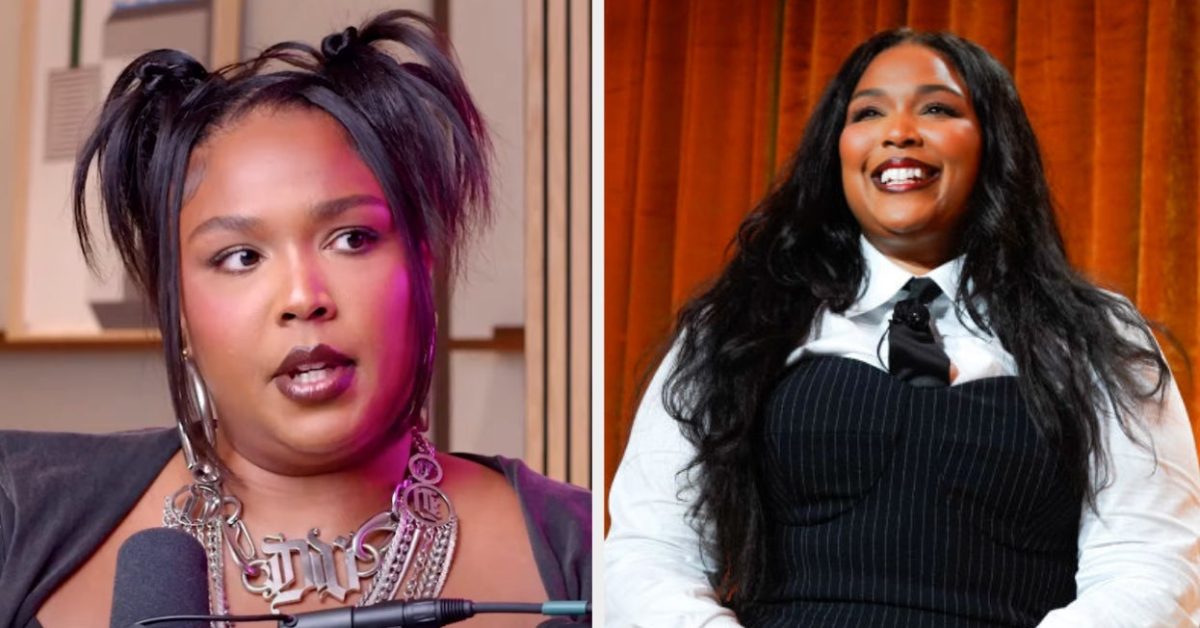
Anil Kapoor on the True Meaning of ‘Fighter’ and 40 Years in Bollywood
Feb 5, 2024
The Big Picture
Actor Anil Kapoor discusses his role in the film Fighter and the depth of his character, Rocky, who is in the Air Force. Kapoor explains that the appeal of a character lies in its power and excitement, regardless of age or typical expectations. The actor reflects on the success of his career and attributes it to the popularity of the characters he has portrayed, focusing on improving his craft as an actor.
At 67 years old and well over forty years of Indian cinema running in the blood of Anil Kapoor’s veins, it remains a phenomenal feat that the Bollywood veteran continues to dip his toe into new waters with every project he releases. In the last few years, every film Kapoor has put his name to boasts a different genre to the last, from action and western-thriller to rom-com and now arial action extravaganza in Siddharth Anand’s Fighter. The film is a hearty, patriotic unpacking of India’s elite Air Force as they soar the skies to take down a gargantuan threat to the nation. Featuring a glitzy cast of Bollywood’s finest alongside Kapoor, Fighter stars Hrithik Roshan and Deepika Padukone as the top-of-their-class pilots under Kapoor’s watchful eye.
Collider’s Safeeyah Kazi sat down with Kapoor to unpack the layers of the jet-fuelled spectacle including its underlying metaphor for the fights that take place under the surface as well those those in the skies. The highly-esteemed actor also cruised through his renewed perspective on his career after four decades, his process for deciphering his next projects and tackling the outside criticism. You can read the full interview below.
Fighter (2024) Top IAF aviators come together in the face of imminent danger, to form Air Dragons. FIGHTER unfolds their camaraderie, brotherhood and battles, internal and external. Release Date January 25, 2024 Director Siddharth Anand Cast Hrithik Roshan , Deepika Padukone , Anil Kapoor , Karan Singh Grover , Akshay Oberoi Writers Siddharth Anand , Ramon Chibb , Abbas Dalal , Hussain Dalal , Biswapati Sarkar
SAFEEYAH KAZI: Can I just say, I saw Fighter and it was absolutely brilliant. Completely different from what I thought would be in the best way. It had so much depth and grit to it, which I really didn’t expect, so congratulations because it’s a fantastic film.
ANIL KAPOOR: Thank you. Thank you so much.
One of the first things I noticed was that Rocky has this incredible depth to him. I think from the external perspective, he says so much even in his silences — just the look, the presence he has, the demeanor. But what was it for you that really drew you to the character?
KAPOOR: This character, obviously it was written and sent to me. I loved it. It gave me a rough idea, then I went into the details of the script. Sometimes you prepare a character inwards and then you go outwards. Here, what I first did was I first worked externally and physically and then went internally into it. So, the thing is I was playing this character of Rocky, who’s in the Air Force, the Elite Force, and flies this Sukhoi, which is the fighter jet. So, I said there is a certain kind of an age limit for this character. Mostly if they’re supposed to fly the maximum age is 45, so that was a big challenge for me to look at first. That’s the reason I said I went externally to it. That’s when I started working on my mind, and, “How am I going to achieve this kind of situation?” And of course, then I, to a certain extent, started thinking about it, and then I did as much research as I could do — watch, read, and understand.
Then I met the producer and one of the writers, Ramon [Chibb], and spoke to him. Then, of course, I went to the airbase, and in their school, I met a lot of officers. This character, especially, was a commanding officer, and there was a commanding officer called KP. I started speaking to him and KP introduced me to Mr Sood, so it was like, you know, speaking to both of them, observing them, talking to them, and then, of course, with the research I had done, I dived into it.
This film, this character, there’s a film which I’ve seen many years back called Patton with George C. Scott, and George Scott won the Oscar and Francis Ford Coppola had written the script of this film. So this film, this character has always been on the back of my mind, you know? So I have been watching and reading — I read the book, also, Patton — so it was always there in my mind for many, many years. So I said, “If I get a character ever in the future…” Because he is an army juggle, but there are certain things which were inspirational from that film. The real-life characters and the real-life brave officers who were speaking with them, talking to them, understanding them, spending time with them, and then the families definitely helped me get into the character of Rocky.
Kapoor is No Stranger to Taking On a Character That is Out of the Box
Image via Viacom18 Studios
It’s a brilliant character. Do you think there was some appeal in the fact that it was slightly outside of the typical scope? As you said, the maximum age is normally 45, so there was definitely a challenge for you in there just being prepared. Was that part of the appeal for the role?
KAPOOR: No, not at all. Not at all. Matter of fact, I’ve never been delusional. I’ve been quite practical, quite honest about my decision and my choices. That’s the reason that I did Eeshwar, if you remember Lamhe, if you’ve seen Animal. So it’s always not the age of the character, but how powerful and how important, how exciting the character is for me in my career. I remember I did a film in the ‘80s when I started my career, and I was playing the professor. [Laughs] I had never ever played as a student, you know? I said, “Beggars can’t be choosers.” At that time, the director said, “This is a kind of a love story where you fall in love with this widow, and then ultimately, you become a professor.” I said, “Done!” [Laughs] So, certain times you do characters, and you can’t say, “I’m going to play this age or that age,” or, “I want to be a student.” Then I got the opportunity to make my own choices. I chose to do Eeshwar, I chose to do Lamhe because in the film I’m a grandfather and in Lamhe I almost played Sridevi’s father.
In my heart and my mind, I think more about the character and how I can improve my craft as an actor, than I would think about how to become a bigger star. So I focus on the characters, and the characters have become so popular in my career. Because the characters became very popular, people thought I had become very popular but it was actually those characters. So those characters which I did from the time I did Mr. India, Karma Ram Lakhan, Karma, Tezaab, Parinda, 1942: A Love Story, Welcome, and No Entry, if you see all those characters, Slumdog Millionaire, where I played this host, and then I did 24 where I played the Iranian president in that. So these are all the characters, the Kiefer Southern character of Jack Bauer, which I did the Indian adaptation notes on 24. And so all the films which you have seen lately that I’ve done, it’s basically the characters that really have become very, very popular. The characters have resonated with the audiences all over the world. Today, if I’m speaking to you, I think that the reason is the filmmakers, these co-stars I worked with, the scripts, the choices I made, and that has really helped me become.
My endeavor and my pursuit always is to find those characters, which I’ve never done. Sometimes the directors find me and push me to do those characters even when I’m not convinced. They feel there that, “You can be able to pull it off,” and I surrender myself to the directors. Sometimes I make the choices and sometimes the filmmakers make choices and come to me. So it’s those kinds of things which I’ve done in my career, which really, really have been so far, very, very fruitful and exciting and made this journey beautiful. Hopefully, in the future, I hope to do many more actors like this, which I’ve done now lately in The Night Manager, but I played the worst man in the world. Then I did Animal, where I played this Industrial business tycoon and the father of this rebel. Then I’ve done Rocky, where I play an Air Force officer in Fighter. Even in Jugjugg Jeeyo, which was a comedy where the son comes to me and he says, “I want to divorce…” and before he can say it, I said, “I’m gonna divorce your mother,” first.
[Laughs] That’s brilliant.
KAPOOR: Bheem became very, very popular with the people, you know. So, I think that’s what has been the exciting part of my journey.
I will say that whilst you definitely put a lot of credit down to the characters being popular, ultimately, it’s the portrayal that makes them convincing, and that delivery is so critical, so I think that credit is absolutely yours.
Everything Fell Into Place on ‘Fighter,’ Says Kapoor
One of the things I really loved about Rocky is that he’s quite unique in the sense that he’s not larger-than-life. He’s very normal in that you can really relate to the struggles, and the internal battles you see in him. Was it different to portray someone who was carrying so much, but in such a subtle, pared-back way? Because for the first half of the film, you really don’t know why he is the way he is. It’s very underlying. It’s the second half that really sort of starts to unpack that. Was that a different challenge for you or did you have to dig into a different place?
KAPOOR: No, I just feel the way it was written. Every character is difficult. Initially, when you start working on a film or a character, everything looks very, very difficult and you feel nothing really comes easy, to be honest with you. It obviously makes you anxious, and then obviously, it all depends on the team who you’re working with, and of course, the way it has been written, the way the co-actors, and the ambiance, and the universe has to come together to make it. So, I always pray to God and hope that all these external and internal things come and help me.
I am so well prepared before I go on the set that I am like clay in the hands of the director, and he can maneuver me wherever he wants to navigate me and play around with me and whatever he wants. So this is the clay, which I am, and he can move me the way he wants to. Because somewhere I feel it’s easy for the director to mold his character as an actor when he’s definitely prepared in all kinds of directions he wants to take me to. So, there are certain directions there, certain instincts which you get on the set, but somewhere you have gone through all kinds of 100 directions you almost. You should be ready for 110, and then the 111th one comes on the set because of the atmosphere, the co-actors, all these things, you know. So there are so many things which really help you.
So, I’ve been very fortunate that everything just fell in place where Fighter is concerned. The co-actors were brilliant. It was the first time I was working with Hrithik. He is so inspirational, he’s so hard-working, he’s so sincere, he’s so brilliant in the film. There was Deepika, there was Akshay Oberoi, there was Karan [Singh Grover]. Then, of course, Siddharth Anand, a phenomenal, phenomenal director. This is the first film he’s produced, and what a film, you know? For a debut film as a producer, such a mammoth film. It’s such a difficult film and with such budgets. See, what happens is when you make a film on the elite force or Air Force, it’s the most difficult film to make, and with the kinds of budgets the Indian films have, it’s absolutely minuscule compared to international budgets. And now, because of social media, it’s very easy for them to compare it with a film which is made on a minuscule budget compared to when we hear the budget and convert it into rupees it’s absolutely monstrous compared to ours.
I remember doing 24, and Howard Gordon, who is a showrunner and dear friend of mine and the producer of 24, I showed him the first episode, and he said, “What’s the budget of the film?” And he was shocked. And I promise you, if internationally the filmmakers and producers and studios come to know the kind of budget we made 24 [on] compared to war films and films based on the elite force, having this warfare in the skies, they would be completely flabbergasted.
And still, the film [is] absolutely a blockbuster in America and the UK, and it’s the world’s number one film at the moment. It’s reached number one in Australia, Canada, the UK, and America it’s very, very heartwarming. And of course, India also is doing very well, but I’m just saying. So the love we’ve got, I’m so happy with that. Absolutely. And it’s a film that’s just released. It’s just been four days, and with the word of mouth and the positivity I think, hopefully, more people with the word of mouth and the positivity. And I hope, and I pray, and I wish, and I want more and more people to see this film. Everyone who really loves his own country will love this film.
Yeah, I agree. Definitely. And I think for me, one of the most powerful parts of it is that, yes, Fighter is about the Indian Air Force, and it’s got a real grit to it in that sense, but there’s a real sort of deeper undertone of the daily fights, the daily battles that people go through every day. When you were approaching this role, what did you have in your mind of, like, an experience of what a fighter should be that you really took to it? Of course, there’s the practical side of it, having met the Sukhoi pilots, et cetera, but emotionally what did you take to that that really helped you bring in that sense of being a fighter?
KAPOOR: See, I feel the kind of profession we are in, and the kind of world we are living in and the kind of situation which is there now, you have to be a fighter. To have your self-respect and still to see to it that your nation, your family, your friends, your children, your bosses, the people who employ you — it might be the studio, it might be the filmmaker — to really make them happy and peaceful and positive, you have to be a fighter eternally. I’m sure you’re a fighter yourself to reach where you reached, to sit now and interview all the people you want to interview. You must be a fighter in your real life to come to this situation.
So keeping that entire struggle and what I have gone through to be relevant for the last more than four decades, the kinds of things which I have gone through, also really helps me be the fighter he is. So all the decisions I’ve taken, the ups and downs, firefighting in real life, which is there within me. It’s there internally. And then how do you use that? All these memories, the emotional, the physical, the decisions, and being ready for everybody. You internalize and use that for the character. And then, of course, there’s a protocol, there is a uniform, there are duties. This job is such that you have to be available 24/7 and you have to be ready. There’s nothing like, “Okay, I’ll come in the morning. Let me eat now.” No, you have to be ready 24/7. You have to protect your country, and the skies 365 days and 24 hours of your life. The intensity of this job is unreal. Absolutely incredible.
So to believe in it, to feel it, I had to prepare myself to give that. So when I walk or when I speak or when I talk, in my silences, all these things are there internally for it. If it’s not there internally, you will not be able to see that in my eyes or in my face. And then of course, when you’re wearing a uniform, automatically you start feeling this uniform is so beautiful. It just makes you feel so proud of the uniform and feeling for your nation. If you’re patriotic and you love your country, then that’s the way you work on it emotionally. And there’s so many layers to it, I can go on and on.
No, it’s so powerful. I think that’s so true.
KAPOOR: And of course, their pitching is completely different, the way they speak, the way they walk. It has to be very, very crisp. There are no ifs and buts. There’s no fumble. There’s a clarity of what he says and what he expects as a leader from his team, and he loves his team and the officers who are like his own children. And of course he respects that there are higher-ups for him, also. So, you know, there is all this hierarchy which is there, and the call of the duty. So there are so many layers to this character, so it was very, very exciting. And I think every actor all over the world loves that something like this comes in their career once in a life. I’ve been fortunate that I did Pukar, where I played an army officer. So the only thing left for me is to do [is] a naval officer. Hopefully, I do.
Yeah, definitely. Why not next? I’ve really noticed, as well, in Bollywood and Indian cinema in general, that we have seen a real use of action being a vehicle to speak to the deeper issues of society or the feelings outside of the cinema. We saw it, I think, definitely with Joanne, I think Fighter is a great example of this. Do you think there is an intentional sense from filmmakers that this is what the audience needs right now, to use action as the vehicle and then really embed those deeper stories?
KAPOOR: I could answer this question from me as an actor. I’m from a family who has been producing films. We’ve never followed the trends of what people expect. I follow the gut, my instinct. And I’ve done those kinds of films. So, I’ve done Mr. India as the first superhero film where I’m invisible. I’ve done musicals, I’ve done love stories, I’ve done dramedies, comedies — all kinds of films, and I’m not really following the trend. When the film releases then it has become the trend, and that’s been my career. So I think this question you could ask the filmmakers. All kinds of films always keep on coming to me, all kinds of genres, and at that point, when I listen to it, what I feel instinctively, ticking all the boxes, and then I go ahead and make those films. So I don’t know, you know? It’s not emotional. That’s not my job, absolutely not my job, to see what works and what doesn’t work.
I do what I feel works for me as an actor and what the filmmaker wants to make. There’s a filmmaker whom I respect and admire and he’s making something which is completely against the trend of what is happening. I would rather do with that kind of filmmaker, with his conviction. And it might be a very abstract kind of film which I feel when you hear it or you feel it, listening to it, that nobody would understand this film and this film might not do good at the box office, but I love the filmmaker so much. I would love to work with him. I will go with his instinct. I know this will not work [laughs], you know, at the box office, but I did it. Slumdog, I never imagined — I just wanted to be part of that film because I wanted to work with Danny Boyle. But never I said, “Yeah, I don’t know if internationally this will release,” or, “Will it work? Will it not work? I’ve never seen this kind of film. Why should I do it?” I just said, “This filmmaker’s come to me, I should do it.” This is an example which I think will connect all over the world. That’s the reason I’m giving that example, not because of Slumdog, and the name of Slumdog. It’s a good example for youngsters or everybody who’s reading the article.
Definitely, and I think you’ve done, especially in recent years, you’ve done such a variety. I think your career in general, you’ve done a variety of roles.
KAPOOR: For example, The Night Manager. I’m playing the worst man in the world, and I’ve always been the leading man, like a hero, who’s always a do-gooder, and he’s more like Ram [Hindu deity] and in The Night Manager, I’m playing Ravan [the 10-headed king of the demons in Hinduism]. I’ve always played Ram in my life, like Mr India. In those films I’ve done I’m being a good boy, a good man, a good son, a good brother, a good father. So, I just like it, I love it, I just do it. I’m very, very fortunate to get all these kinds of varieties of roles, and filmmakers are still sending me these scripts and approaching me with these kinds of films, and I’m very, very fortunate. I’m blessed and lucky, and so that’s what it is.
Kapoor Reflects on Four Decades in Bollywood
After 40 years, you’ve had such an incredible career. Do you still ever find yourself affected by the outside noise, the reviews, the critics, or has that kind of slowly taken a backseat because you’re able to just enjoy the process and do projects that you’re really passionate about?
KAPOOR: See, everybody has his own ways of attacking things. I have my own to remain sane, normal, [and] positive. So, I do that. That’s the way I go over every day of my life. There’ll always be ups and downs, emotional, there will always be firefighting, there’ll always be some kind of hiccups, [and] roadblocks. Sometimes you feel, “Well, this is the end…” But then you get up in the morning and sometimes something positive happens, and you fight it and resolve it and move ahead and enjoy this whole process, and the life and the breath which God has given you, and be grateful that you are still breathing, alive, kicking. Your hands, your eyes, your clothes, your nose — everything is working.
So true. I know you’ve spoken a lot in the past about how you’ve battled it to get into the industry and that journey, and it’s such an incredibly powerful story. Is there anything you still carry from your experience in the early days that you still use every day as, like, ammunition to keep fighting or just to carry on just as motivation?
KAPOOR: Absolutely. I’m still doing that.
Yeah, I suppose it doesn’t really ever go. It’s just something you learn to use in a positive way.
KAPOOR: Yeah.
I’m really curious to know, is there anything now, looking back at 40 years, just before you sort of really had your big moment in Bollywood, is there anything you would do differently or would you just do it all again and watch it a second time?
KAPOOR: I think the journey has been quite a roller coaster ride, and it’s been fun. I think I’m very fortunate, so I would not like to change anything. I just feel that it’s been great, absolutely terrific. I have entertained and been very true, and honest, and sincere. Anybody who’s given me a job, and anybody who’s employed me for any kind of situation or in any relationships, professionally and emotionally, I’ve done my best. I give my best and even more. They ask for 10, but I’ve given them 20. And I wish and I hope that I do that all my life.
And I think it shows, as well. I think the fact that you’ve been able to do such a variety of roles is so powerful because I know you’ve said before that you were never sure initially what type of actor you wanted to be, you just wanted to be in front of the camera. So now in hindsight, looking back, would you have specialized or do you think it all worked out exactly as it was supposed to?
KAPOOR: No, whatever I dreamt has worked out the way I wanted to be. These were my dreams. I came into my senses that I just wanted to be an actor and do all kinds of various characters. I never really thought about, you know, you sometimes dream that you want to become very, very rich, you have lots of properties, you want to have them — I never dreamt that. I always dreamt about being an actor and improving myself and doing my best and becoming the best, and always trying to improve my craft, my physicality in every sphere, you know, constantly trying to improve myself. And so I think that’s what I dreamt of and that’s what I feel. It’s happened the way I dreamt. And obviously, there are a lot of dreams unfulfilled, which I would pursue to do, but it’s been absolutely fantastic. Terrific.
It’s been an amazing journey to watch, as well.
KAPOOR: Absolutely. It’s been a lot of fun, a lot of laughter, and sometimes tears, but all fun laughter, joy. I’ve traveled over the world, met some exciting people, worked with the best filmmakers, actors, actresses, [and] technicians. So, it’s been wonderful. Absolutely fantastic, and I hope to do it as much as long as I’m alive.
When you’ve achieved so much and there’s so much you’re so well regarded, so well respected in the field, what’s left on the bucket list to achieve? I’m sure you’ll say a lot, but what tops that list for you?
KAPOOR: I’m just happy with the response of Fighter, so I’m just enjoying that at the moment. There’s been The Night Manager, there’s been Animal, there’s been Fighter. So, as all my people I’ve met in my fraternity, it’s just, “Enjoy the moment, and have fun with it.” So that’s what I’m trying to do at the moment.
Fighter is now playing in theaters in the U.S. Click below for showtimes.
Get Tickets
Publisher: Source link
"All Of This Came Out Of Nowhere": Lizzo Publicly Responds To Sexual Harassment Lawsuits After Being Dismissed From A Case
"We're continuing to fight the other claims."View Entire Post › Disclaimer: This story is auto-aggregated by a computer program and has not been created or edited by filmibee.Publisher: Source link
Dec 27, 2024
This Fan-Favorite Elf Quote Almost Didn’t Make It Into the Film
11. Determined to maintain the old school aesthetic, Favreau told Rolling Stone he didn’t want to make the film “a big CGI extravaganza," only using the technology to add some snow. “I like motion-control, models, matte paintings,” he explained. “It…
Dec 27, 2024
Guess The Missing Word: Christmas Song Titles
The holidays are here, and there's no better way to ring it all in than a seasonal song or two. So test your yuletide knowledge by identifying the missing word in the 14 holiday songs below. Good luck! Disclaimer: The…
Dec 26, 2024
Score an Extra 40% off Fashion & More
Our writers and editors independently determine what we cover and recommend. When you buy through our links, E! may earn a commission. Learn more. Even on Christmas Day, Anthropologie has your back with an extra 40% off sale that’s practically a…
Dec 26, 2024











